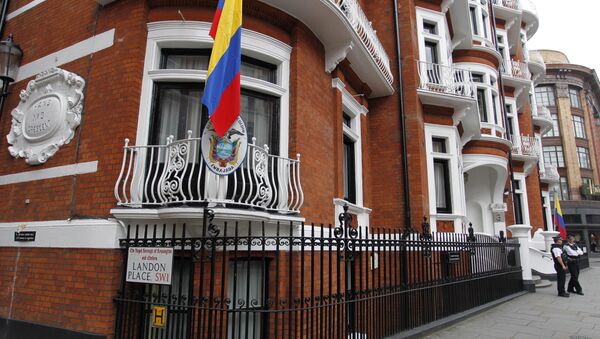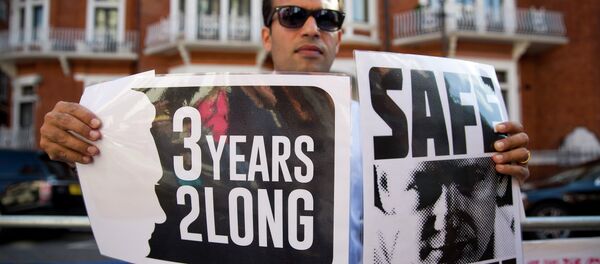Assange took refuge in the Ecuadorian embassy in August 2012 when the South American country granted him political asylum. He was avoiding extradition to Sweden on charges relating to sexual molestation and one count of unlawful coercion. Assange denies the accusations which were dropped in August 2015 under the statutes of limitation.
Assange was avoiding being extradited to Sweden as he feared onward extradition to the US where he is wanted, under the Espionage Act over WikiLeaks releasing the Bradley (now Chelsea) Manning material, disclosing nearly three-quarters of a million classified or unclassified but sensitive military and diplomatic documents.
The UK Metropolitan Police (MPS) announced Monday it would stop deploying officers, guarding the entrance to the embassy 24/7, which had cost US$17 million over three years. "The operation to arrest Julian Assange does however continue and should he leave the Embassy the MPS will make every effort to arrest him. However, it is no longer proportionate to commit officers to a permanent presence," it said in a statement.
#Assange siege: This obscene tax spend against a public figure who hasn't even been charged was ordered by the Cameron government.
— WikiLeaks (@wikileaks) October 13, 2015
Ambassador Took Police Removal as Threat
However, it has now emerged that officials at the embassy were told of the intention to stop round-the-clock covert surveillance in August. Documents seen by BuzzFeed show that UK Foreign Office minister Hugo Swire visited the embassy on August 13 and spoke to the ambassador, Carlos Ortiz.
UK surveillance siege against #Assange has cost more than the Chilcot and Westminster iniquries put together http://t.co/8b8Pyk3tZS
— WikiLeaks (@wikileaks) October 14, 2015
Following the meeting Swire said: "Ecuador must recognize that its decision to harbor Mr Assange more than three years ago has prevented the proper course of justice. As a result, some of the serious sexual allegations against him will now expire.
"It is completely unacceptable that the British taxpayer has had to foot the bill for this abuse of diplomatic relations."
"I want to make clear that as an allegation of rape remains outstanding, the UK continues to have a legal obligation to extradite Mr Assange to Sweden.
"I have instructed our Ambassador in Quito to reiterate to Ecuador that the continuing failure to expedite the Swedish Prosecutor's interview, and to bring this situation to an end, is being seen as a growing stain on the country's reputation."
Notes from the meeting, by embassy officials say: "The pressure of budget spending and what will be spent in the next five years is a concern in view of the politics of austerity that the UK government has adopted because of the economic crisis affecting the country."
The ambassador interpreted this as a threat that other actions may be taken to release Assange.
After Assange entered the embassy in August 2012, the UK Foreign Office delivered a note to the Ecuadorian government in Quito, reminding them of the provisions of the Diplomatic and Consular Premises Act 1987, which allow the British government to withdraw recognition of diplomatic protection from embassies.
Sputnik contacted the UK Foreign Office for a comment, but has — at the time of publication — received no response. No-one from the Ecuadorian embassy in London was available for comment.





